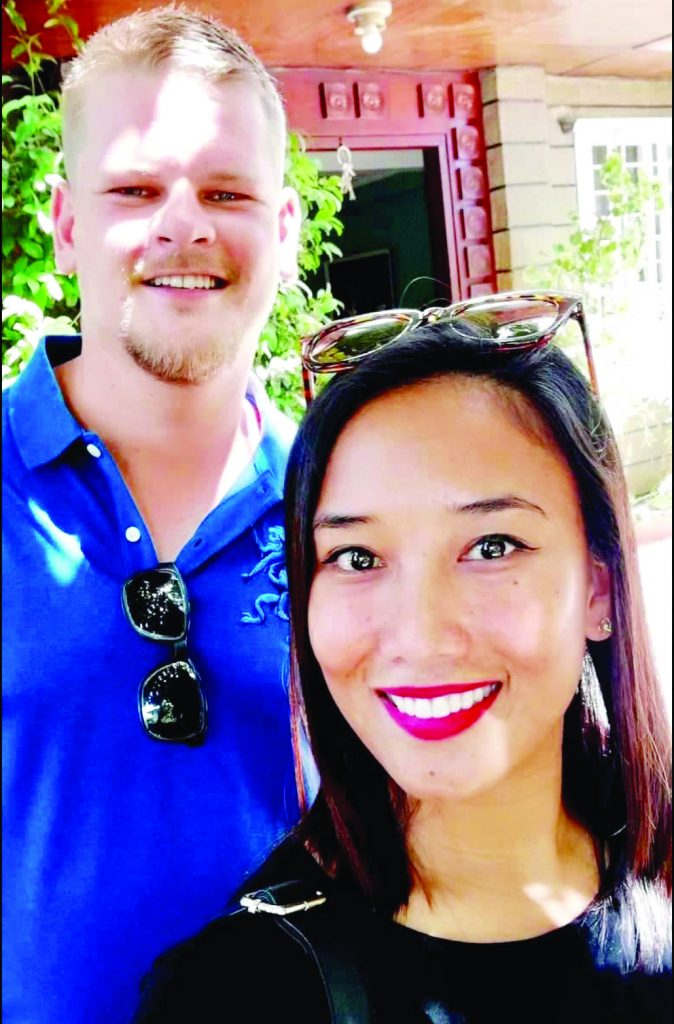BORROWING the sobriquet bestowed by the defunct Asiaweek magazine, Davao City has become “one of the most livable in Asia”.
Today, Davao City is one of the country’s top tourist destinations. The de facto capital of Mindanao, the city is one of the largest in the world with a total land area of 224,000 hectares. Its boundaries encompass commercial areas, as well as beaches, mountains and forests. Approximately, it is 7.8 times the size of Cebu, and three times that of the entire Metro Manila.
Situated beside the Davao Gulf, the city is dominated by the country’s highest peak, the 2,954-meter Mount Apo. The dormant volcano is home to tribes such as Bagobo, Manobo, Mandaya and B’laan. Its fertile rolling foothills are teeming with exotic fruits, like durian, marang, mangosteen, rambutan, and pomelo, as well as the country’s second flower icon, the waling-waling.
Credited for transforming Davao City to its current progressive state is no less than President Rodrigo R. Duterte. After all, he was mayor of the city for almost two decades.

“His fight is for a better Philippines,” replied Klaus Doring, a German who now lives in the Davao capital, when asked what he likes most about Duterte.
Doring knows what he is talking about, and all too well to fall in love with the place. He first came to the Philippines in 1976 and now lives in Davao City, together with his Filipina wife Rossana Balcom, since 1999.
“I think, I was one of the few foreigners staying here,” he said. “Today Davao City has changed a lot, and is now one of the most progressive cities in the Philippines.”
Doring sees himself living there for the rest of his life. “I was born in Germany, but I consider the Philippines as my second home country,” he pointed out.
On living in Davao City, he added, “I feel safe here. I enjoy life here. I already got my grave ready here.”
By the way, it was not his wife who asked him to stay in Davao City for good, it was he who decided on it. “We were living in Germany for 16 years,” he shared. “One day, I asked her if we could move to Davao City.”
Doring may be a German by birth, but he considers Davao City not only his second home, but also his last. “Because it is the most livable city in the Philippines,” he declared. “I love its people and the multicultural situation. Best, it is the home of President Duterte.”

Another foreigner who fell in love with Davao City is Tom Anthony, a retired US Army officer who now writes novels. He is the man behind the bestselling Rebels of Mindanao. He also wrote the novel, Sabine, which was made into a movie.
When Anthony first came to the Philippines, he and his wife Mailyn and their two daughters settled in the country’s biggest city. They have a beautiful house, located near a beach. Currently, however, the family is in California, where the daughters are going to school. But Tom will be back in Davao soon, when he will start filming another movie.
Although a fiction, Sabine happened in Davao City. According to him, while driving back and forth from Dumoy, a part of Toril district, to downtown every day, he wrote down what he saw. One that caught his attention was the MacArthur Highway in Matina.
“General (Douglas) MacArthur was a personal boyhood hero and inspired me to go to West Point,” he admitted. “I found it ironic that I now live along a highway named after him. I began to wonder how he would feel if he drove along this highway, today, and I started to write a report called ‘MacArthur Highway’.”
On why he chose Davao City as the setting of Sabine, he answered: “I think it is interesting to see a place you know through the eyes of a foreigner; it makes one see it differently.”
Anthony said he has friends in Manila and all over the world. “We visit and travel but return here in Davao City,” he said. “My American friends seem a little bit envious, and wish they could trade places with me.”

Then, there’s Jonathan A. Watson, who moved from the United States to Davao as a teenager in 2009. He studied Bachelor of Arts in Psychology at Ateneo de Davao University, where he also took his Master of Arts in English.
Watson said he now lives in Davao City because in the past, “I had heard a lot about it being one of the most liveable cities in the Philippines due to a low crime rate.”
Now, “after living here for many years, in comparison to other places I’ve been to (or even have lived) here in the Philippines,” he said in an exclusive interview, “Davao has remained one of the most ordered (cities) as far as peace and security go.
“Although crime can still happen, and even issues such as the Roxas (bombing) incident,” he continued, “I’d say the low rate of such has kept it a livable destination in the South. Even my friends from Luzon, whom I have given tours of Davao to, had note d how people ride jeepneys with their phones out, or walk around without worry at night – something they themselves said they wouldn’t do in some parts of Manila.”

Finally, there Sean Ligtvoet, a Dutch national. He came from Rotterdam in Netherlands which is, in many ways, the exact opposite of Davao City.
“I like the spatial planning in Rotterdam more but I’m always inspired by the kindness and hospitality of the Filipinos,” explained Ligtvoet who is married to a Filipina. “I’m actually not such a big fan of Manila because I get quite intimated by the amount of people and the traffic.”
He and his wife now live in Davao City. “I rather work for P40,000 a month in Davao than for 400,000 a month in Manila,” he pointed out. “In Davao, there is still space and possibilities for a small player to become big and in Manila it’s already a rat race.
“Furthermore, I really want things to be done and in Davao it’s still quite easy to move around. Last meeting in Manila, I spent 4 hours in traffic on my way, one hour in meeting and 4 hours back in traffic. I can’t get things done this way and nothing destroys your motivation more than spending half of your life staring at the bumper of the car in front of you.”
These expats turned residents love the city for different reasons. But one thing’s sure, they all love to stay here for good.






